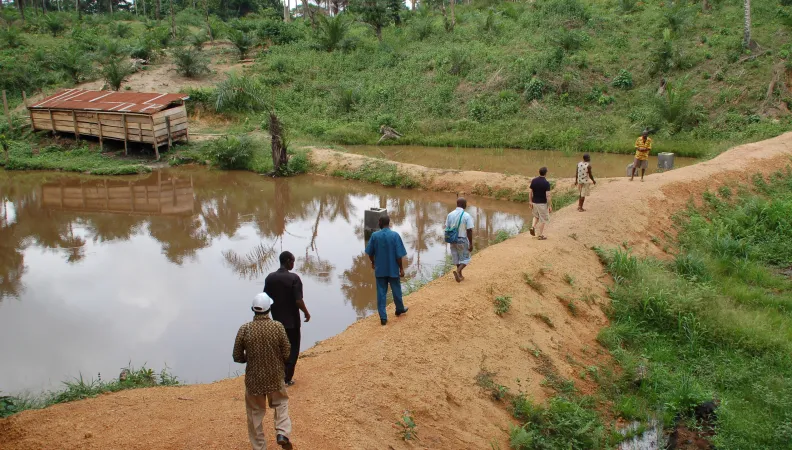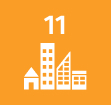Share the page
Mini-hydraulics in Guinea (PEHGUI)
Project


-
Project start date
-
Status
Completed
-
Estimated date of project termination
-
-
Project financing date
-
-
Financing duration
-
4 years
-
Type of program
-
FFEM
-
Global financing amount
-
€ 2 000 000
-
FFEM financing amount
-
€ 1 000 000
-
Project lead member institution(s)
-
Ministry for Europe and Foreign Affairs
-
Country and region
-
Africa
-
Type of financing
-
Partners
-
Beneficiaries
-
Foundation Energies for the World
-
Type of beneficiary
-
NGO, Foundation

Improving the living conditions of populations in two localities of the region of Middle Guinea (Republic of Guinea), through electrification via a pico hydropower plant together with a photovoltaic solar plant and by defining a rural electrification programme for twenty localities.
Context
The Republic of Guinea has significant hydroelectric potential and yet electrification remains at low levels in rural areas: 3% in 2012. Although the absence of electricity acts as a brake on economic and social development, available forms of renewable energy – which would be a sustainable solution reducing the dependence on fossil fuels – are still not being exploited.
Action relies on the results of two completed projects:
- The Decentralised Rural Electrification Programme, funded by the World Bank for involvement in the private sector in the field of decentralised electrification using various methods. The second, “Removal of obstacles for the development of pico hydro-electric power” funded by the EU (Energy Facility 1) is intended to prepare the introduction of rural electrification through small hydropower in around 70 regions.
- The experience of Fondation Energies pour le Monde (Energy for the World Foundation) in the introduction of decentralised rural electrification and the involvement of all stakeholders in ensuring its durability. The challenge is to promote wide-scale access to electricity services using mature, environmentally friendly technology suited to the energy resources of the country and within the framework of suitable governance.
Description
Section A: Following a deep-seated feasibility study already completed and the raising of awareness among local and regional stakeholders, two out of the four pre-chosen sites in Middle Guinea will be selected.
Working in close collaboration with BERD, a local partner of the foundation, operators will be selected, trained and then supported throughout the project with regard to the technical, organisational and financial issues relating to the management of a small-scale hydropower station, electricity distribution and customers.
With the support of local and foreign consultants, project management will be provided for the provision and installation of electrical production and distribution equipment, integrating innovative aspects. The monitoring and assessment tools, alongside indicators used for measuring impact will consolidate the work and bring forth recommendations. Through the distribution of this feedback to local institutional parties, backers and private operators, the PEHGUI project aims to replicate these methods across all the selected areas following the planning works in section B.
Section B: As part of a dynamic for the change of scale, and following on from the raising of awareness among people and communities over the challenges of gaining access to electricity, a multiple criteria analysis will be carried out in Middle Guinea in order identify the most appropriate areas for electricity access. The methods for producing a programme targeting these areas (technical, institutional, financial, etc.) will be drawn up.
Outcomes
5800 people have access to a sustainable and reliable source of electricity in two areas in Middle Guinea. Improved living conditions for local people is expected: three quarters of users will see their expenditure on energy reduce while simultaneously enjoying better air quality.
Thanks to the electrification of these two areas, it will be easier for children to do their homework, improving their grades at school. Adults will gain access to information, through the radio and television. Economic activities will develop. A large-scale feasibility study for the electrification of twenty areas will be formalised by the publication of a scheduled brochure.
Sustainable Development Goals
ODD11 Sustainable cities and communities



